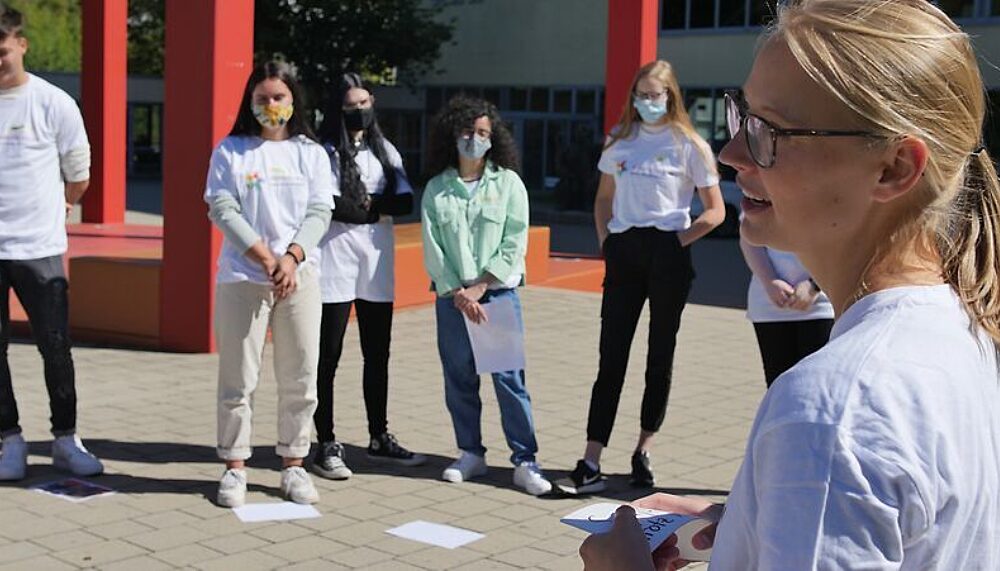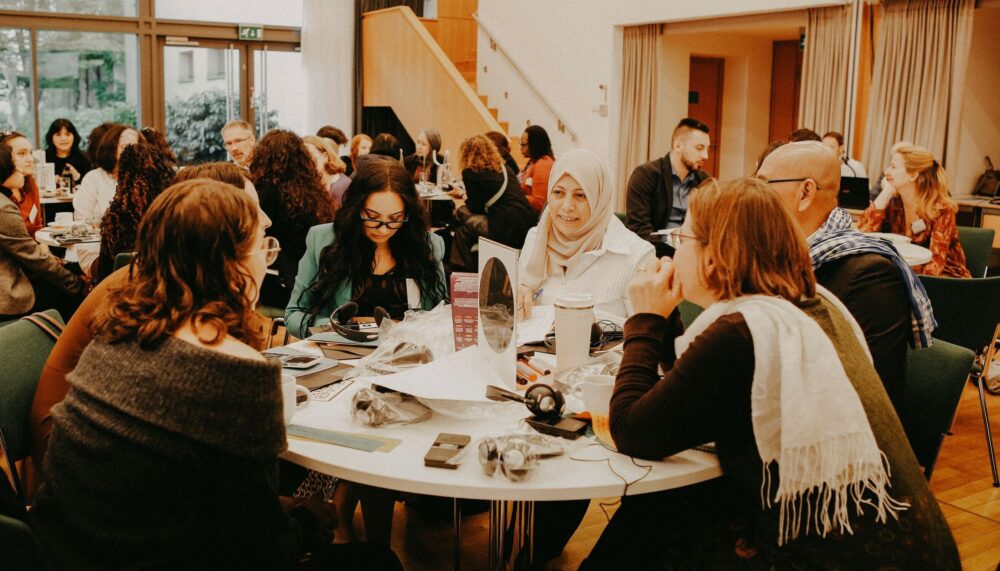Vision, mission and principles
Our vision
A world changing for the better through constructive conflict transformation.
Even in the midst of destruction, social and political conflict can develop forces of positive change, when people engage with each other constructively and together seek inclusive and peaceful ways to address the grievances and issues that divide them.
Our mission
To create space for conflict transformation.
We bring people in conflict together. We enable and support learning processes that inspire the development of new perspectives, relationships and behaviour, thus opening possibilities for addressing conflict and finding ways of living together peacefully.
Principles of our approach
Based on our understanding of each conflict context, we seek to respond adaptively to conflict-specific needs and opportunities as they evolve. At the same time, we remain committed to the following principles, which inform and guide our work.
Partnership
Conflict transformation is a collaborative and long-term process that requires collaborative efforts by multiple actors. Therefore, we build reliable and transparent partnerships based on mutual trust and respect in order to enhance combined capacities for peaceful change.
Inclusivity
Inclusivity means participation by those affected. It ensures that all relevant views and interests are addressed. Since it requires a willingness to engage, inclusivity can contribute to the building of trust and foster a culture of constructive engagement.
Multiple Levels
Protracted conflicts are systemic by nature and can sometimes involve societies as a whole. Therefore, we seek to engage people at all levels and build bridges, from grassroots communities and marginalized groups to combatants and political decision-makers.
We approach all parties with openness...
Multi-Partiality
Integrating opposing perspectives into a peaceful settlement of conflict requires that all sides are equally heard and taken into account. More than being impartial, we approach all parties with openness, trying to understand their underlying interests and motivations.
Ownership
Ownership means enabling those we work with to become involved and assume responsibility for their conflict challenges. Therefore, we see our role as providing the support that empowers others to shape a better future for themselves.
Reflection
Conflict transformation is a mutual learning process that requires everyone involved to reflect critically on their role, policies and actions. Through systematic reflection and analysis, we seek to improve our practice and share our learning with research communities, policy makers and practitioners.
Complementarity
We do not work in isolation but rather aim at strengthening and building on existing initiatives. We bring unique strengths to complement ongoing processes. In some settings we support high-level dialogue and mediation processes. In others, we accompany civil society actors and movements.
Accountability
We assess the conflict sensitivity of our actions and their impact, adjusting our work to minimise unintended harm to those we work with and to the broader conflict context. We report substantively on our work and regularly review our monitoring and evaluation tools.
Sustained Commitment
In conflict transformation there are neither linear blueprints nor quick fixes. Sustained change involves addressing systemic challenges and root causes of conflict. Effective support therefore requires long-term commitment and persistence despite repeated stalemates, backlashes and moments of re-escalation.



